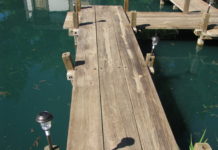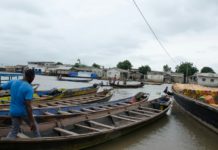Photo credit: DiasporaEngager (www.DiasporaEngager.com).
Building on CGIAR’s commitment to delivering improved varieties to smallholder farmers, the leadership team of CGIAR’s Genetic Innovation (GI) and Seed Equal Research Initiative joined forces with seed sector players at the World Seed Congress 2023 in Cape Town, South Africa organized earlier this month by the International Seed Federation (ISF). The event brought CGIAR together with private seed companies — both large and small – to explore collaborative opportunities to offer better genetics and quality seeds to smallholder farmers in low- and middle-income countries, where the full potential of genetic gains is yet to be realized.
With this year’s event theme “Shared Roots, Greater Heights”, one of the key panel discussions focused on “How to enhance farmers’ access to quality seed in Africa”, touching on the challenges of access, availability, current interventions, and proposed policy solutions in the region.
Seed Equal Initiative Lead, Chris Ojiewo, was part of the panel and talked about how an enabling regulatory environment can support African farmers in accessing high-quality seeds, leading to increased food security and economic growth. Challenges highlighted during the panel included: poor understanding of market segmentation and target product profiles, limited data to support commercialization decisions, limited capacity for early generation seed (EGS) production and supply, the limited feedback loop from grain demand pull leading to poor certified seed supply response to demand signals, limited awareness of the merits of new varieties hampering adoption and scaling, and limited use of quality inputs (seed) leading to poor quality and quantity of outputs (grain) that do not meet standards demanded by off-takers causing a vicious demand cycle and timely access to quality seed limited by inadequate/inappropriate policies.
Current interventions through the Seed Equal initiative were also highlighted in the panel discussions. These include demand-driven cereal seed systems, boosting legume seed through a demand-led seed approaches, scaling and delivery of vegetatively-propagated crop (VPC) seed, partnerships and capacity sharing to ensure uptake of publicly-bred varieties, policies for varietal turnover, quality assurance, and safe trade in seeds, and scaling equitable access by reaching the unreached with quality seed.
During the 3-day event, the GI- Seed Equal leadership team comprising of Ian Barker, Chris Ojiewo, Marcel Gatto, Ajay Panchbhai, and Philippe Ellul engaged with donors, seed producers/ traders’ associations of global and regional nature, seed certification agencies, seed producers and other private sector representatives through various meetings and discussed possible collaborations. The GI Seed Equal team also discussed MoUs with regional and international seed trade organizations such as ISF, APSA, and AFSTA, specifically focusing on licensing varieties from research to commercialization and scaling. Several bilateral discussions were also held with seed companies and other development partners on policy solutions, including flexible registration and common licensing mechanism to facilitate varietal handover for commercialization, support to inclusive seed production, and supply systems to access, multiply and disseminate seed of public-bred varieties to last-mile farmers. Some of the other topics of discussion were facilitating strategic demand-led public-private partnerships to strengthen EGS and certified seed supply, strengthening channels, and platforms to create awareness and generate or consolidate demand ‘pull’ for grain and thereby seed, establishing portfolio process to manage the pipeline of varieties based on market segments, emerging markets, extensive on-farm testing and demand analysis and foresight, and regular review product profiles to fit target markets.
The World Seed Congress 2023 held from June 5 to 7, 2023 in South Africa, is an annual event bringing together decision-makers from the global seed industry and serves as an avenue for expanding knowledge in the seed sector, negotiation of agreements, and networking since its inception in 1924. Among the participants were representatives from donors working on improving the seed system and seed trade such as the Bill and Melinda Gates Agricultural Innovations, LLC, Food and Agriculture Organization (FAO), World Bank and Syngenta Foundation for Sustainable Agriculture (SFSA), regional seed trade associations such as the African Seed Trade Association (AFSTA) and Asia Pacific Seed Alliance (APSA) and global seed companies such as Bayer, Corteva, Semillas Fito, Sakata Europe, East-West Seed International Limited, SeedCo and Technisem helping small-scale farmers have access to quality seeds.
The GI-Seed Equal global initiative aims to promote the improvement of seed systems in delivering to smallholder farmers high-quality seeds of priority crops that are climate-resilient, market-preferred, and nutritious while ensuring equitable access to women and other disadvantaged groups helping position CGIAR’s research towards a systems transformation approach for food, land, and water systems.
Source of original article: International Potato Center (cipotato.org).
The content of this article does not necessarily reflect the views or opinion of Global Diaspora News (www.GlobalDiasporaNews.com).
To submit your press release: (https://www.GlobalDiasporaNews.com/pr).
To advertise on Global Diaspora News: (www.GlobalDiasporaNews.com/ads).
Sign up to Global Diaspora News newsletter: (https://www.GlobalDiasporaNews.com/newsletter/) to start receiving updates and opportunities directly in your email inbox for free.

































